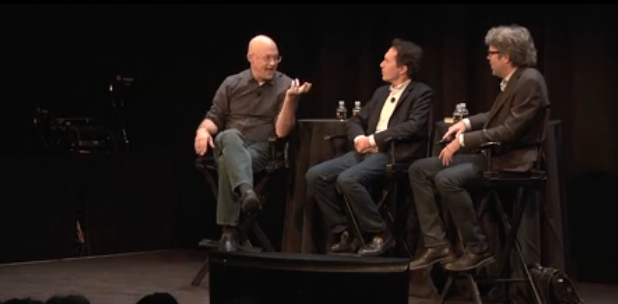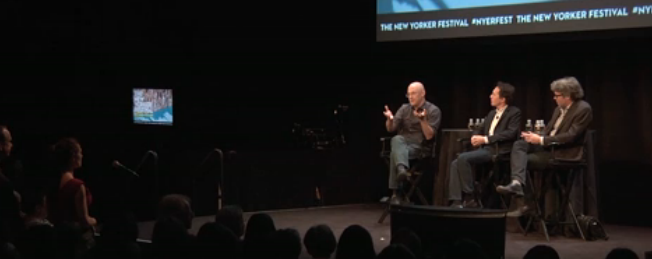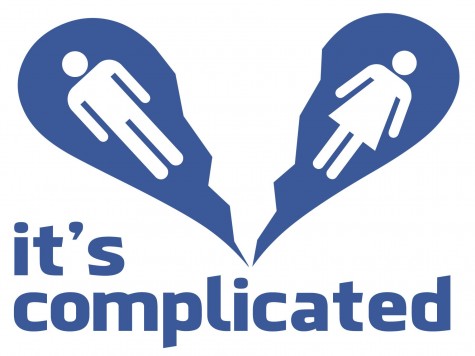Is Technology Good for Culture?

The 2013 New Yorker Festival at SIR Stage37 in Manhattan. Henry Finder, Editorial Editor, opens the discussion with an introduction into what Jonathan Franzen, Clay Shirky and himself will be discussing throughout the course of the seminar. He mentions the age old debate of Mac v PC and then asks wether Twitter is for good or evil. The audience chuckles and it’s time to begin.
“All consumption is the consumption of advertising” the first discussion is about Apple and how they have advertised the Mac and how an entire industry has been revolutionised by a simple manufacturing technique that Steve Jobs knew was imperative for his company to uphold the vision that he had in his own mind. Advertising these days has changed especially after the original Mac v PC ads that Apple aired, however it’s safe to say that these days the advertising is a far cry from the actual technology as usability of the actual product. “Cool has now just become a word to sell technology” this is a jab at the fact that Apple are always using overbearing and unnecessary adjectives to describe their new products and devices, the term beautiful and revolutionary have become synonymous with all of the iProducts mostly because of the voice of Jonny Ive in their commercials and promotional videos. Jonny Ive has always shared the vision that Jobs had about the minimalist design, walk up ability and perfectionism when it comes to his designs and it is that drive that has propelled Apple forward even in the wake of Jobs’ death in 2011. The obsession with ‘Cool’ as a selling point has driven the industry through the recession and although Apple may be at the forefront of this ‘revolution’ Jonathan Franzen argued that students may love the usability of iMacs however he preferred to use Microsoft because he liked to be able to change the setup and internal hardware of the actual device eg, changing the battery etc.
Publishers these days are a lot harder on potential writers in this modern era, instant self promotion is a must and some publishers no matter how good your material is may not take your transcript if you don’t have a substantial amount of followers on Twitter or friends on Facebook. Clay Shirky is adamant that discoverability is imperative for any good writer to gain credibility, however in recent years again, technology has changed the way companies discover individuals and their work just as the push and pull factor has developed along with the industry. The publisher used to draw attention and say “look at this book it’s about X & Y” but now the industry has changed to more of a pull factor like “who is the audience & how can you reach them?” A personal brand is paramount because nowadays people buy you and not your book in a sense.
“Experience, make, Share”. You can’t get anywhere without feedback and Franzen is adamant that he wouldn’t have got anywhere with his book if his collaborators hadn’t given him the feedback and information he needed to further develop his book and his own personal skills as a writer. He said that he found everything easier once he created a mailing list for feedback and implored every writer in the audience to do so as well, he found that even if a small percentage of people and professionals got back to him then the knowledge and intricate details they shared were invaluable to his publication.
Everything that is going on in this modern world has to be noticed one way or another whether that be on Twitter, Facebook, Craigslist or even just scribbled on a toilet wall. Nothing is private anymore either, even if you have a private event, people will still be able to find out somehow. Teenagers now have an intense sense of privacy but also an overwhelming need to been seen and heard, the balance between keeping the things that they want private and the things that seem private but are actually uploaded intentionally is hard to monitor but teens are now able to negotiate their online presence to regulate what their parents see rather than what they actually do.
What type society can support this new style of networking in which Journalism is subsidised to the extent that breaking news has to be online first and if it’s not then you lose out and other people get all the publicity? The saturation input on Facebook, Twitter and even the online news sources to an extent has exploded in the last 5 years, the “look over here” mindset online has taken over and it seems that only Twitter is flexible enough to support both individuals and businesses.
The country is figuratively run by people who own all the tech and all the banks, states are losing more and more power and the Government is in melt down – so is technology really all that good for a developing cultural world? Or will this universal online narcism rampage where everybody gets a trophy and everyone can express themselves regardless of their writing structure continue on its destructive path through the online world.

Sam Neve is junior international student from Great Britain studying Journalism. He has an eclectic taste in both music and sports and enjoys going to...











